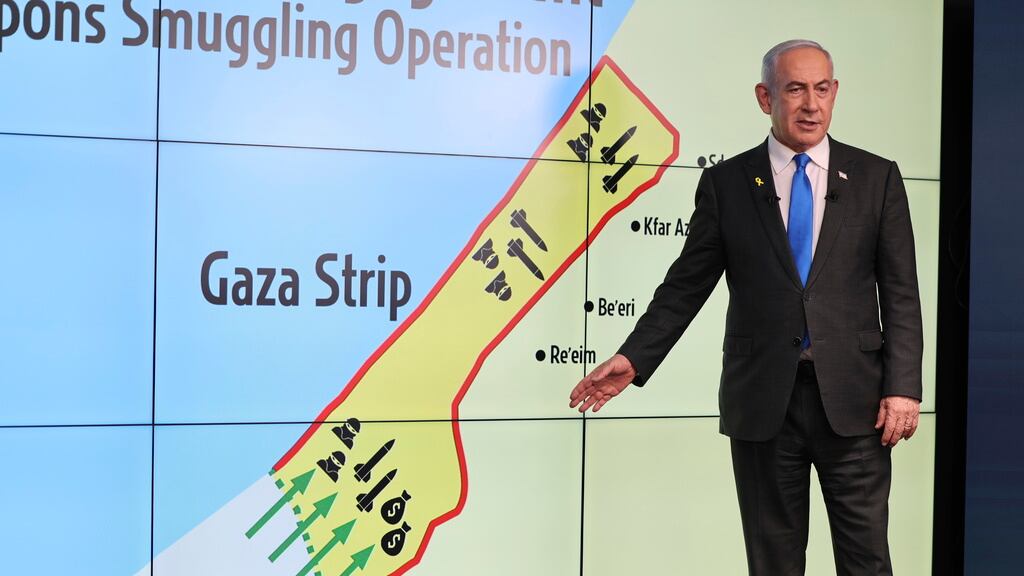JERUSALEM (AP) — Prime Minister Benjamin Netanyahu insisted that Israel must maintain indefinite control of the border between Gaza and Egypt, reiterating his stance on an issue that has threatened to derail efforts to achieve a ceasefire.
PUBLICIDAD
The control of the Philadelphi Corridor —a narrow strip of land along the border between Gaza and Egypt, which Israel took control of last May— has become one of the main obstacles in the negotiations. Hamas has demanded a complete withdrawal of Israeli forces from Gaza as a condition to reach a ceasefire agreement to be implemented in several phases.
PUBLICIDAD
Egypt, acting as a mediator in the negotiations alongside the United States and Qatar, has also demanded a set deadline for the withdrawal of Israeli forces from the Philadelphi Corridor. Additionally, the United Arab Emirates, which established formal relations with Israel in 2020, also criticized Israel's stance on Wednesday.
Why does Netanyahu insist on controlling the Philadelphi Corridor?
In an unusual press conference in English with international journalists, Netanyahu reiterated his stance that Israel must maintain control of the border to prevent Hamas from replenishing its supply of smuggled weapons. He said that ensuring Hamas is unable to repeat its attack on October 7, 2023, against Israel is a fundamental part of his war objectives.
"Gaza must be demilitarized, and this can only happen if the Philadelphi Corridor remains under strict control", he stated, asserting that Israeli soldiers have discovered dozens of tunnels under the border.
He said that Israel would only consider withdrawing from the corridor if they are presented with a proposal for an alternative force to safeguard the area. "Bring anyone who can really demonstrate to us that they can truly prevent a recurrence" of smuggling, explained the Prime Minister of Israel. "I don't see that happening at this moment. And until that happens, we will be there."
The pressure from the United States and the hostages' relatives
The relatives of the remaining hostages have intensified their demands for an agreement to be reached after Hamas killed six of the captives last week while Israeli forces were about to rescue them.
In public statements filled with indignation, relatives of the hostages have accused Netanyahu of preventing an agreement from being reached and possibly sacrificing the lives of their loved ones in order to maintain control of the border corridor. Hundreds of thousands of Israelis have taken to the streets in recent days to demand an agreement and to say that time is running out to bring the hostages back home alive.
"I can understand the ordeal of families," Netanyahu stated. "But the responsibility of leaders is not only to share the sentiment, the emotions, but also to act with discernment."
Faced with the question from some journalists about a deadline for the end of the war, Netanyahu refused to establish one. "How long can we do this? As long as necessary to achieve this victory. And I think we are getting very close," he replied.
Meanwhile, the United States is preparing a new ceasefire and hostage release proposal, hoping to break a deadlock and end an almost 11-month-long war.
